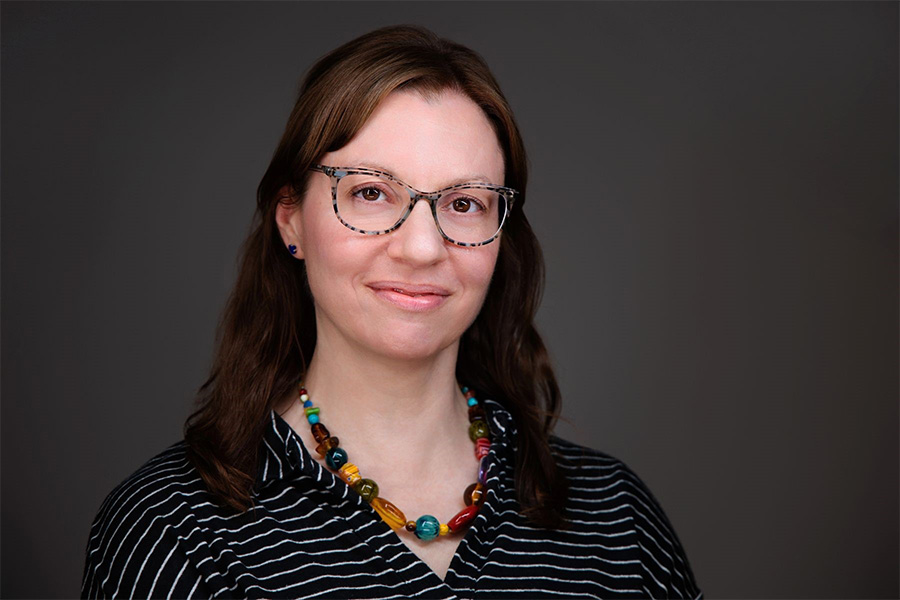- Home
- News
- Recent News
- Meghan Bailey Awarded Innovation Grant for "Unresidency" Project
UMass Boston Archivist Meghan Bailey Awarded Innovation Grant for "Unresidency" Project
Meghan Bailey, processing archivist in UMass Boston’s Healey Library University Archives & Special Collections (UASC), is using her Innovative Grant award from the artists’ foundation Art + Everywhere to transform archives into a creative catalyst.

Bailey was awarded the Innovation Grant from Art + Everywhere, a foundation that supports cutting-edge work in the arts. The grant will fund her project Intersections of Art and Archives: An Unresidency Program, which aims to expand traditional uses of archives.
Her grant-funded pilot will launch an “Unresidency,” an artist residency without the residence that invites five local artists to explore UMass Boston’s archives and special collections as inspiration to create original artwork.
“The name intentionally challenges traditional expectations—conceptually suggesting a refusal, rethinking, or questioning of norms,” said Bailey.
The resulting artwork will be featured in a public exhibition in the Grossmann Gallery at Healey Library, on view from January 26 to May 15, 2026. The exhibit will be co-curated by Bailey, Art + Everywhere board member Jeremy Andreatta, and Art History Professor Carol Scollans.
Bailey has worked in the UASC for 11 years and also manages the Healey Library’s Grossmann Gallery. In 2024, she took a six-month sabbatical to explore how artists use archival materials and how archives can better support creative practices.
“The idea for the Artist Unresidency grew out of my experience at Lesley University’s MFA in Visual Art program (2021-2023) and my sabbatical research in 2024,” said Bailey. “During my MFA program, my understanding of the intersections between art and archives was somewhat rigid and challenged my ability to engage in critical theory around this topic. My perspective at the time was shaped by my formal training in archives management, while useful, made it difficult for me to fully appreciate how artists interpret archival materials—often in ways that push against conventions in archival theory.”
The project seeks to address several community needs identified by Bailey: breathing life into the underutilized Grossmann Gallery with thought-provoking exhibitions, expanding use of the archives, and fostering connections between artists and archival materials.
“I think artists bring a unique perspective to archival materials,” said Bailey. “They’re often not bound by the same expectations and needs as academics or researchers; they approach the material more intuitively. That kind of engagement can surface stories or connections that might otherwise go unnoticed.”
Intersections of Art and Archives: An Unresidency Program aims to transform how artists and communities engage with UMass Boston’s archives. It has potential as a source for thinking not only creatively but in innovative ways about the past and the present.
“Archives can be used as a space for resistance and self-care through creativity,” Bailey wrote in her proposal. “By integrating interdisciplinary perspectives with archival work, I aim to foster greater engagement with archival materials across both academic and community spaces.”
The “Unresidency” artists were selected this summer. Research and development of artworks will continue through the fall, leading up to the public exhibition opening in January 2026.